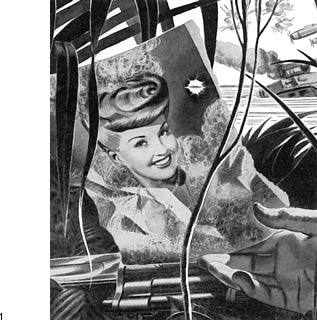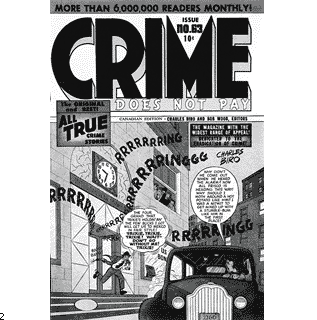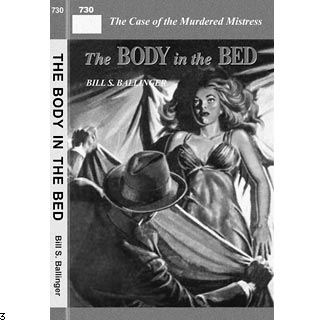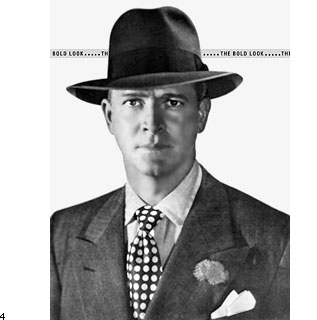Stuart Hall (as an antidote to the Frankfurt School): "Encoding and Decoding in Television Discourse" [xerox handout]
Stuart Hall on Encoding and Decoding (Semiotics for Beginners): this is Daniel Chandler's very elegant way of describing the key ideas of Hall's classic essay, and embedding it within the history of semiotics. This offers a alternative to the "mass culture" approach to Television initiated by the Frankfurt school, and reaching its (optimistic) culmination in McLuhan.
McLuhan as Cultural Critic
Marshall McLuhan, The Mechanical
Bride: The Folklore of Industrial Man. (1951) In
contrast with the evagelical affirmation of The Medium is the Massage,
this text offers bitingly ironic and brilliantly incisive critiques of
the media culture of American advertsing as it emerged on the pages of
magazines in the years following World War II. McLuhan showed that the
appeal of these ads suggested that ads were the catalysts in the creation
of a new set of myths, narratives and folklore, and that these supported,
but also exceeded in fascinnating ways, the narrow ideologies of
consumption. Here the range and wit of his readings satirize, defamilarize
and read this folklore. Not only did McLuhan grasp the mass appeal of
American advertising before most cultural critics, and his readings of
these images have striking similiarities with the readings of popular
culture Roland Barthes would develop a few later in Mythologies
(1957)




Introduction to the Mechanical Bride makes the analytical perspective clear. [Pages are from Essential McLuhan, ed. by Eric McLuhan and Frank Zingrone.]
- Reading to defamiliarize the ordinary world invoked by the ad. McLuhan offers an enlightenment justification for this reading: "Why not use the new commercial education as a means to enlightening its intended prey? Why not assist the public to observe consciously the drama which is intended to operate upon it unconsciously?"(21) This requires a tactics of proximity to the object studied (like Poe's Descent Into the Maelstrom).
- Folklorist's perspective is more useful than the familiar moral indignation.
- Although the folk don't invent this folklore of industrial man, there is a degree of "cohesion and unity" that seems to "arise from a sort of collective dream"
- These particular ads have an indexical function; McLuhan has not attempted a typology or a topology of them; the reader may read in any order; the readings don't tempt to exhaust but open up this terrain.
- Here the image is used to "energize the mind" and prepare for a iconoclastic reading (22): the reading goal is liberation: "Today the tyrant rules not by club or fist, but, disguised as a market researcher, he shepherds his flocks in the ways of utility and comfort." (23: worthy of Frankfurt school or Debord)
- "Gotham Gold Stripe" [EM, 25-26]
- 10 Years of LOOK: . [EM, 28-29; R, 177-183]
| McLuhan as Media Theorist of the 1960s: Understanding Media and "Vision 65" | |
| What McLuhan got right: | What McLuhan got wrong: |
| New media takes old media as its content (EM, 151) | Media as a total environment: media environments are not just containers, but "processes that change the content totally." (EM, 225) |
| Media ecology: The emergence of a new medium leads to change in the other media in a media sphere. After a mutation in media, an older medium (like film after TV) can become "art." | The technodeterminist: new media technology leads to changes in media envionment leads to changes in the ratio of the senses, body, etc. McLuhan traces 'origin' and 'development' of media which unfolds "without any resistance." (EM, 159) |
| Global communication: this enables emphathic identification and participation in lives that are remote in space and culture | Global village: new electronic media powers an integration and unity, such that differences of nation, language, ethnicity fade in significance. |
| The fading of the literary: McLuhan's understanding of the intimate link between print media and "literature" makes his an early diagnostician of the social impossibility of sustaining the traditional values of literacy. | New myths from an evangelist for modern media: "myth" and "consciousness" are terms McLuhan uses to describe the new media order, where all human and cultural difference and mutual resistance are overcome (EM, 149) |
| Energizing effects of
hybridizing media in the history of comparative media (EM, 278,
174): print & steam press & telegraphy = newspaper photograph & projector & phonograph = sound film |
Circular return of media history: from (oral) tribal to (print) detribalization to (electronic) retribalization |
| McLuhan as enthusiastic futurist: McLuhan should be appreciated as a myth-maker who promotes as spontaneous and inevitable changes he describes | Electric light as example of media: it is invisible but changes everything else. {EM, 151: "The instance of the electric light may prove illuminating..." Symptom of an enlightenment mythos of progress through "enlightenment"; McLuhan can't think repression and the unconscious as persistent. |
|
Debatable themes and ideas of McLuhan: "The medium is the
message" Hot and cool
media (EM, 161) Analogies as vehicles of analysis: "open mesh stocking" (when compared to nylon stockings) means the "eye must act as hand" is like the mosaic of the TV image Global framework: McLuhan's narrative touches all histories and all places through citation, bricolage, suggestive fragments. | |
|
Lynn Sigel's Making Room for Television: toward a cultural history of television Question: how would characterize Sigel's way of understanding how our culture "makes room for TV"? If in McLuhan "culture" is a background context for the grand narrative of techno-media's arrival, and if McLuhan reduces history to the anecdote; by contrast, in Lynn Sigel's cultural history of television, history has a powerful momentum (so America's long term fascination with communication technologies is the cause of television's fast acceptance); culture has complexity and bears agency (so many of the terms of television's institutionalization arise from problems being negotiated by the culture: e.g. the architecture of the domestic suburban home after the trauma's of World War II, what women will be, what men will be…). If McLuhan is anti-disciplinary, Sigel is self-consciousness about the discourses through which we study TV. She rejects industry centered, technology centered, FCC centered (masculinist) histories of media, in favor of a more plural cultural history, that attends to the enormous influence of women in "making room for TV." How does Sigel reading
of ads and cartoons and other documents suggest the ambivalent
(desire and resistance) to the new medium of TV? If in McLuhan TV appears as a vast transformative force, Sigel narrates the arrival of TV as happening in ordinary lives, in local and material contexts, through a sum of numberless singular acts and events. |
Return to Home Page for Professor Warner's The Theory and Cultural History of 20th Century Media (Department of English, UC/ Santa Barbara, 2002)